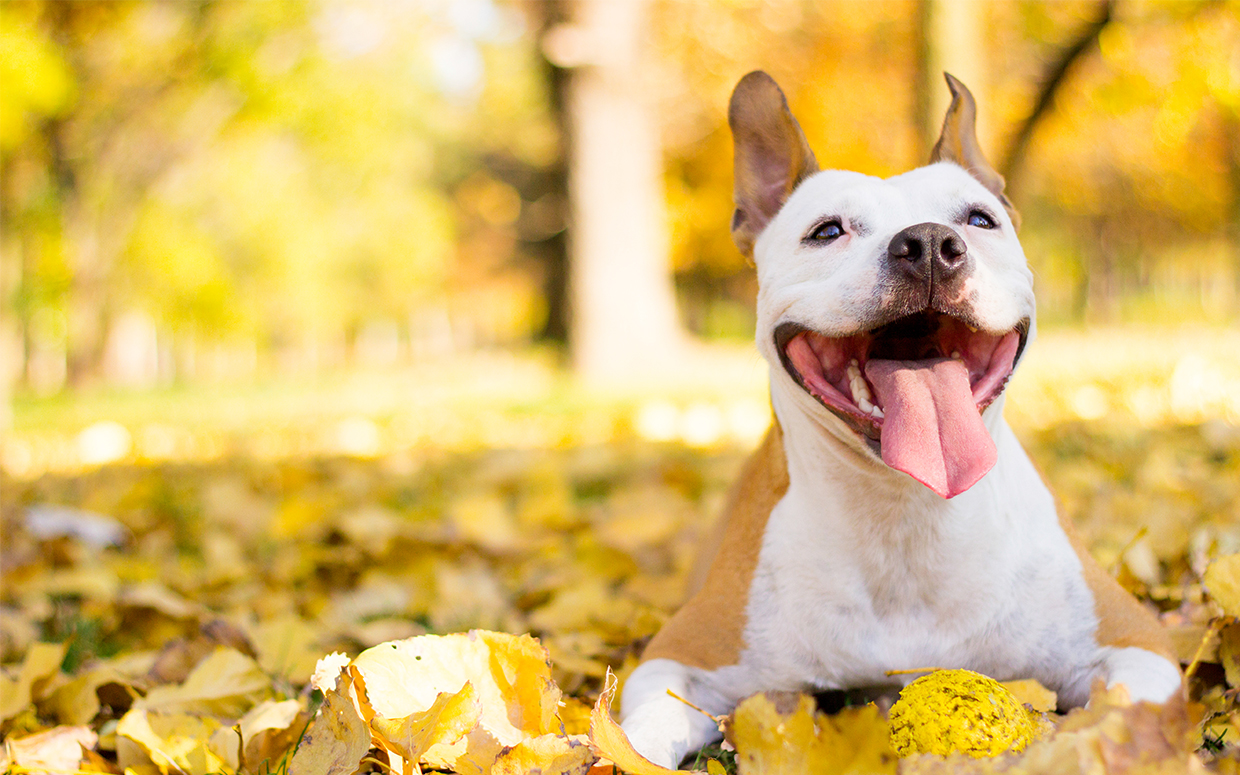As our country slowly enters the cooler months, now is an excellent time to get outdoors before the cold and wet winter months take hold. Milder weather means more comfortable walkies for dogs and lazy afternoons basking in the rays for kitties. Here are some hints and ideas for safe, healthy pets this Autumn.
#1. Ticks are still a threat
Many people believe that milder weather means less or no ticks but this is certainly not the case. Some tick species are able to survive not only in cool weather but even in the coldest winter months due to our mild winters. Apply the following tips to toss the ticks this autumn.
1.Ticks love garden litter – be sure to get rid of raked piles as soon as possible to prevent ticks being protected from the elements in a cosy leafy nest.
2.Regularly check your pet for ticks especially in those tricky areas such as armpits and inside ears.
3.Don’t break your pest control routine – infestations are difficult to get rid of – prevention is always better than cure. Try a product with extended protection to keep your cat or dog pest-free for at least 12 weeks, depending on the product you choose.
4.Ask your vet about annual screening for tick-borne infections to ensure 100 % peace-of-mind that your fur child is infection-free.
#2. When summer’s away, the rats come out to play
As the temperature starts to turn, rats, mice and other rodents begin to look for cosy winter homes – sometimes inside your own! While the rodents have probably been around all year, you are more likely to see them during autumn as they search for warmth. There are a number of methods to control rodent populations – some less ethical than others. The fact remains that poisons are not only inhumane for the rodents themselves, they can prove deadly to your pet if they get hold of a poisoned rat or mouse. In addition, local populations of owls and other birds of prey can be gravely affected in the same way. These birds catch rodents making them an effective natural solution which should be conserved. Speak to your vet about the safe options of rodent control but also don’t become complacent just because your household is abiding by these. Your neighbours may be using rodenticides. There’s nothing quite like the kitty gift of a mangled dead rat on your pillow, but be sure to deal with the “gift” as soon as possible (after thanking kitty of course). If your pet catches a rodent be sure to remove the carcass immediately and monitor them for any signs of illness.
#3. There’s a fungus among us
Some South African regions still experience rain in autumn and this moisture encourages the growth of mushrooms. While most garden mushrooms are harmless to your pet, there are some that can be deadly. It is advisable to familiarise yourself with the species in your area so that you can remove potential threats as soon as they pop up. If you suspect that Fluffy has munched a mushroom, contact your vet immediately for advice and try to take a sample of the offending fungus with you.
#4. Warmer not wider
It is a fact that colder temperatures mean more energy is needed to stay warm and more energy comes from more food. Don’t be tempted to suddenly increase your pet’s portion size though. Pets often spend more time cuddled up during cold months which means they are also burning less energy – you don’t want to come out of winter with a podgy pet. If you believe your pet is hungrier than usual or begging for more food, chat to your vet for advice. You may also want to warm your pet’s food slightly which is actually more palatable as it resembles how their fresh-caught food would be in the wild.
#5. Say no to comfort food
Frosty temperatures are a great excuse to fire up a hearty stew and other comfort food but don’t be tempted by big begging eyes. You may think that giving your pet the odd leftover spoonful of human food is doing them a favour but your delicious recipe may contain toxic items like onions, garlic or high fat content. Familiarise yourself with foods toxic to your pet and check commercial food labels as ingredients are not always obvious, for example, rotisserie chickens often contain onion in the seasoning. Rich, high-fat foods like your Ouma’s lasagne can cause a number of pet health problems including diarrhoea and gastroenteritis and even more serious conditions like pancreatitis. While we agree that your bundle of fluffy love deserves an occasional treat, rather stick to scientifically-developed commercial options or chat to your vet about what human foods are suitable.
Source: https://blog.bravecto.co.za/health-and-wellness/top-autumn-pet-tips/

